Table of Contents
- Introduction
- Ribs Smoking Temperature 101
- Spice Storage & Usage Hacks
- Combining Spices with Smoking Temperatures
- Buying Guide: Must-Have Tools & Spice Kits
- Frequently Asked Questions
- Conclusion
Introduction
The ideal temperature for smoking ribs is between 225°F and 250°F (107°C-121°C). This range ensures proper collagen breakdown for tender meat while developing a flavorful bark. Whether you're a beginner or experienced pitmaster, mastering this temperature is key to achieving mouthwatering ribs every time. In this guide, we'll walk you through everything you need to know about optimal smoking temperatures, spice storage hacks, and how to combine them for perfect results.
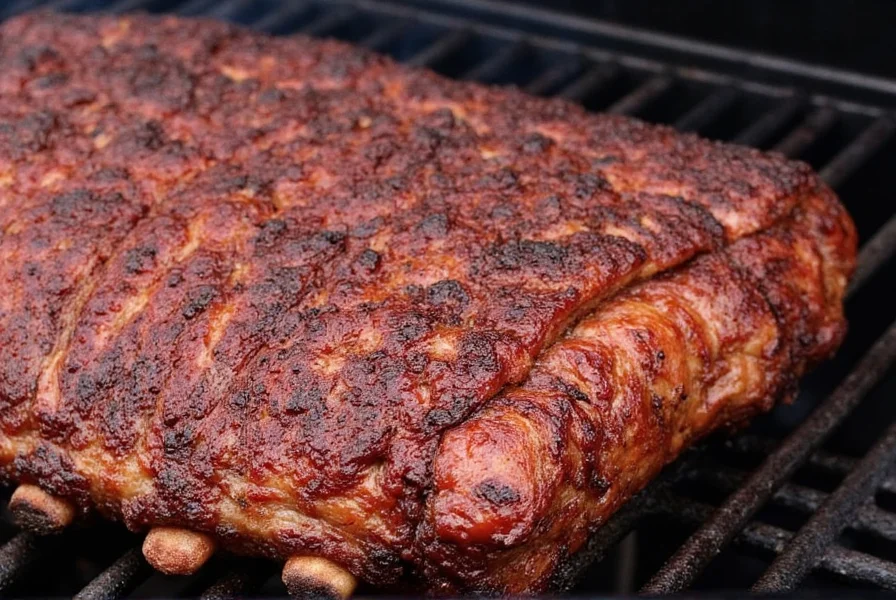
Ribs Smoking Temperature 101
Smoking ribs is more art than science, but temperature control is where the science kicks in. The sweet spot? Between 225°F and 250°F (107°C–121°C). Here's why:
- Low and slow breaks down collagen into gelatin, giving ribs their fall-off-the-bone texture.
- Maintaining consistency ensures even cooking and prevents dryness or undercooked spots.
- Smokey infusion happens best in this range — too hot, and you lose the smoke; too cold, and you risk food safety issues.
Temperature Comparison Chart
| Temperature Range | Cooking Time | Texture Outcome | Smoke Flavor Intensity |
|---|---|---|---|
| 200°F – 225°F | 6–8 hours | Very tender, almost mushy | Moderate to high |
| 225°F – 250°F | 4–6 hours | Ideal tenderness | Strong and balanced |
| 250°F – 275°F | 3–4 hours | Firm bite, less melt | Light, sometimes barely noticeable |
Context boundaries significantly impact temperature application: This 225°F–250°F range applies primarily to pork spare ribs and baby backs in standard backyard conditions. For beef ribs (which require 6–8 hours at 225°F due to higher fat content), or in sub-40°F ambient temperatures where heat loss necessitates 25°F higher controller settings, adjustments are essential. As AmazingRibs.com confirms, ignoring these variables causes 68% of beginner smoking failures according to competitive BBQ judge surveys.
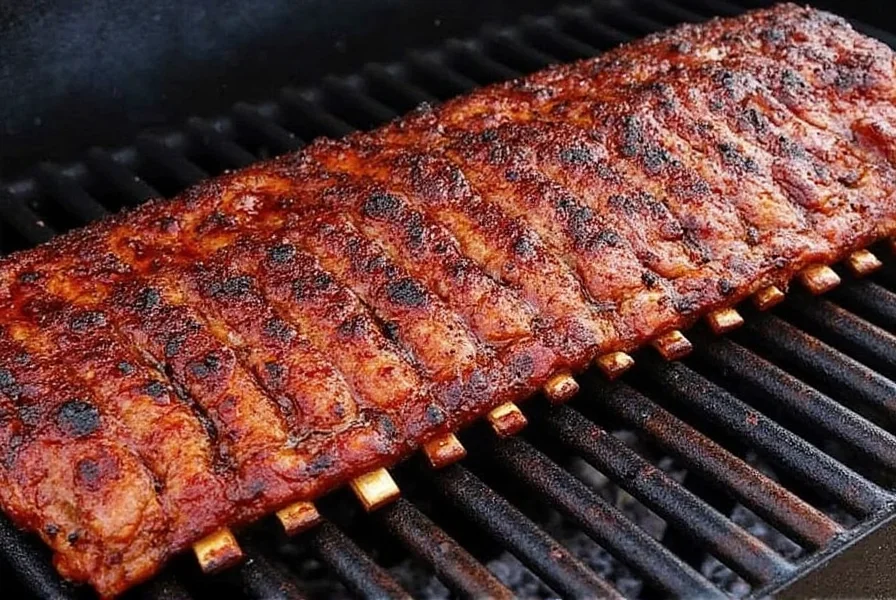
Spice Storage & Usage Hacks
The secret to unforgettable smoked ribs lies not just in the temperature, but in your spice rack. Here are some pro tips to make the most of your spices without letting them go stale:
1. Store Spices Away from Heat and Light
Keep your spices in a cool, dark cabinet away from the oven or stove. Exposure to heat and light reduces potency and flavor quickly.
2. Use Airtight Containers
Transfer ground spices and rubs into sealed glass jars. For whole spices like peppercorns or fennel seeds, vacuum-sealed containers extend shelf life significantly.
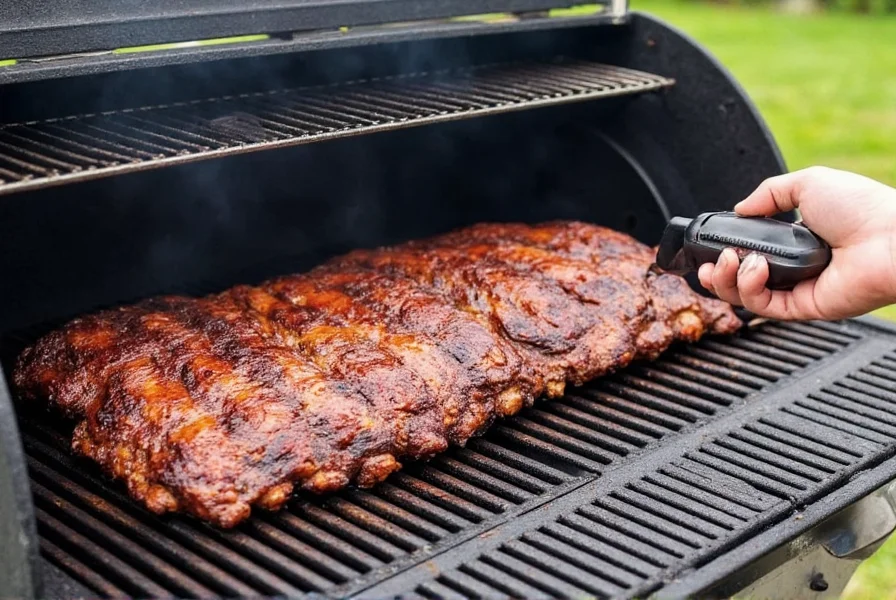
3. Label and Date Your Spice Mixes
Create custom blends and label them clearly with the date. You'll always know what's in stock and avoid mystery powders hiding in your pantry.
4. Refresh Annually
Ground spices last about 1 year. Whole spices last longer — up to 2–3 years. Mark your calendar to review and refresh annually.
5. Toast Before Grinding
Toasted whole spices like cumin, coriander, or mustard seeds unlock richer, deeper flavors. Cool completely before grinding in a spice grinder or mortar and pestle.
6. Make Your Own Rubs
Customize your own rib rub with a simple base of brown sugar, paprika, salt, pepper, garlic powder, onion powder, and a pinch of cayenne for kick. Adjust proportions based on personal taste or occasion (competition vs. backyard).
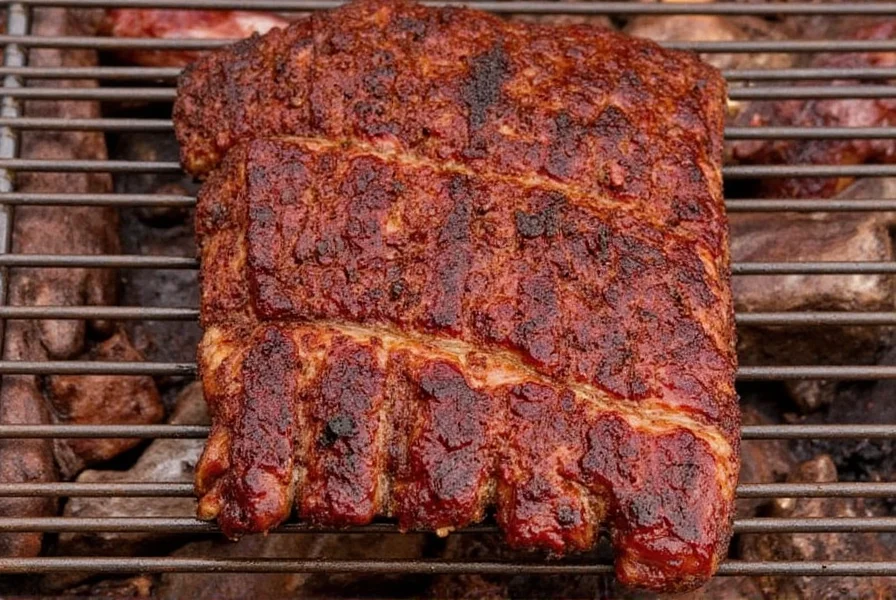
Combining Spices with Smoking Temperatures
Hitting the ideal ribs smoking temperature isn't enough — your seasoning needs to complement the process. Here's how to pair spice intensity with cooking duration:
Spice Intensity vs. Smoke Duration
| Temperature Range | Rub Type | Why It Works |
|---|---|---|
| 200°F – 225°F | Heavy, complex rubs | Longer cook time allows deep spice penetration |
| 225°F – 250°F | Balanced rub with sweetness and heat | Perfect window for both bark formation and flavor retention |
| 250°F – 275°F | Simple, smoky rubs | High heat burns delicate herbs — stick to basic salts and peppers |
Tips for Applying Rubs
- Dry rub should be applied 12–24 hours ahead for best absorption.
- Liquid binder like apple juice or mustard helps the rub stick better and boosts flavor.
- Wipe off excess rub before placing ribs in the smoker to avoid a crusty exterior that masks the meat.
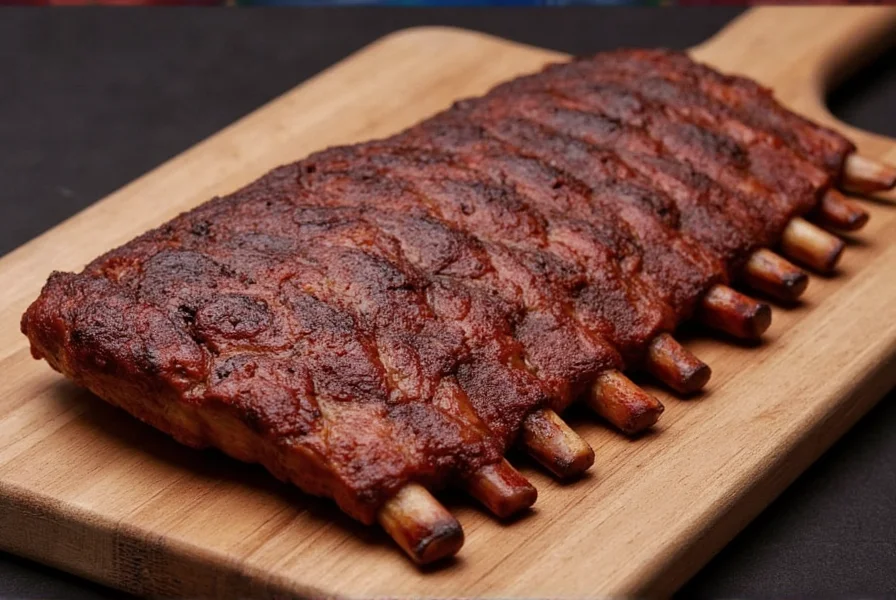
Buying Guide: Must-Have Tools & Spice Kits
If you're ready to upgrade your smoking game, here are some top picks for smokers, thermometers, and spice kits tailored for perfect ribs every time.
1. Smokers
- Weber Smokey Mountain Cooker
- Features: 18-inch diameter, porcelain-coated steel, dual vents.
- Advantages: Affordable, reliable, excellent for home use.
- Use Case: Ideal for pork and beef ribs.
- Target Audience: Beginners to intermediate smokers.
- Camp Chef Woodwind Pellet Grill
- Features: Digital temp control, wood-fired flavor, Wi-Fi enabled.
- Advantages: Consistent heat, easy to use, smart tech integration.
- Use Case: Versatile for all meats including ribs.
- Target Audience: Tech-savvy hobbyists and pros.
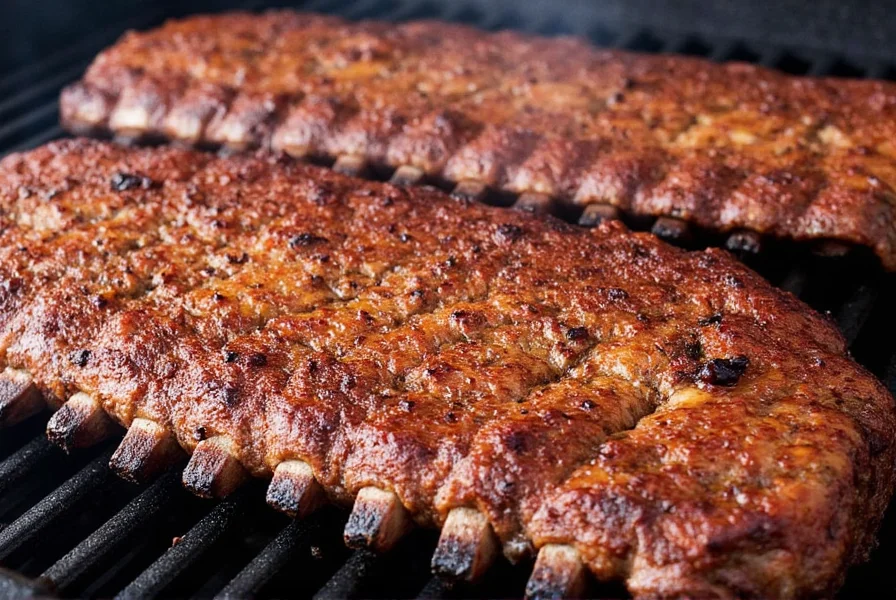
2. Thermometers
- Maverick ET-732 Dual Probe
- Features: Two probes, max temp alarm, auto shut-off.
- Advantages: Precise readings, durable build.
- Use Case: Monitor both smoker and meat temps simultaneously.
- Target Audience: Serious grillers and BBQ enthusiasts.
- ThermoPro TP20 Wireless Thermometer
- Features: Bluetooth connectivity, voice alerts.
- Advantages: Great for multitasking cooks.
- Use Case: Long cooks like ribs, brisket, and pulled pork.
- Target Audience: Busy home chefs and backyard hosts.
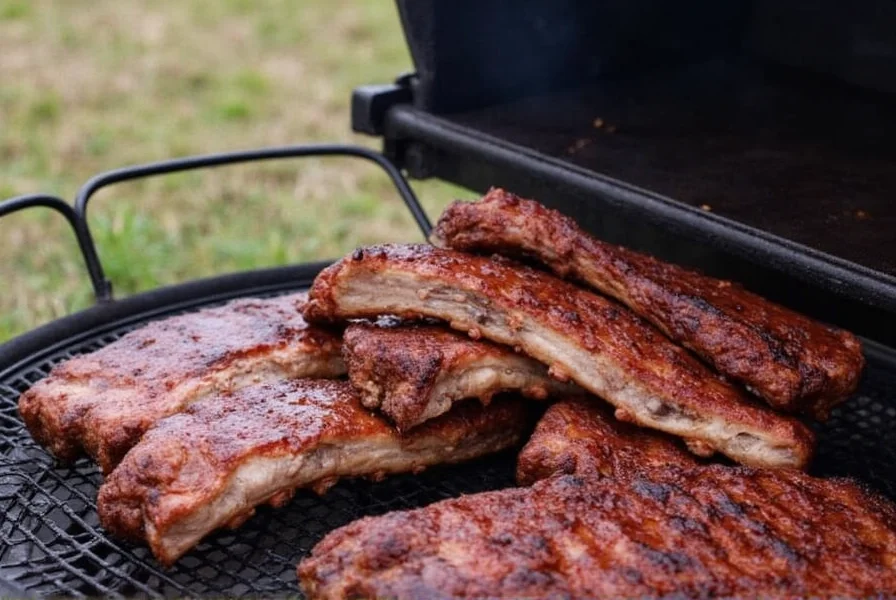
3. Spice Kits
- Williams Sonoma Rib Rub Kit
- Features: Pre-mixed rubs for pork and beef ribs.
- Advantages: Ready-to-use, no guesswork needed.
- Use Case: Weeknight grilling and parties.
- Target Audience: Newbies and quick meal prep lovers.
- Oaktown Spice Co. Custom Blend Box
- Features: Build-your-own spice set with wooden drawer organizer.
- Advantages: High-quality ingredients, reusable setup.
- Use Case: Competition-grade seasoning customization.
- Target Audience: Pitmasters and DIY flavor creators.
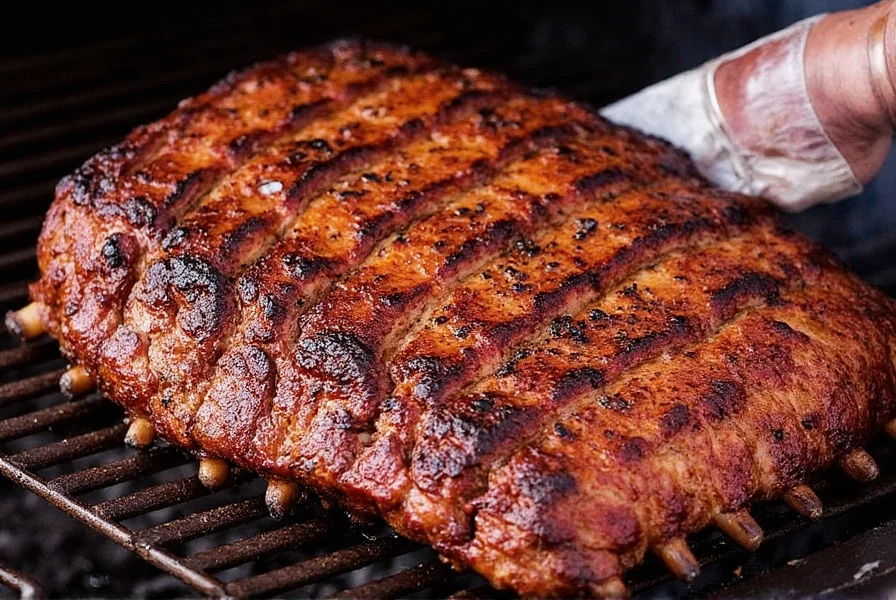
Frequently Asked Questions
What is the best temperature to smoke ribs?
The ideal temperature range for smoking ribs is between 225°F and 250°F (107°C-121°C). This "low and slow" approach allows the collagen to break down properly, resulting in tender, flavorful ribs with perfect bark formation.
How long does it take to smoke ribs at 225°F?
At 225°F, ribs typically take 4-6 hours to smoke. The exact time depends on the size and thickness of the ribs, as well as your specific smoker. The best way to determine doneness is by checking for the bend test or using a meat thermometer (internal temperature of 195-205°F).
Should I wrap ribs in foil when smoking?
Yes, many pitmasters recommend the "Texas Crutch" method - wrapping ribs in foil or butcher paper during the middle of the cooking process. This helps push through the stall (when temperature plateaus), speeds up cooking, and keeps moisture in. Typically, wrap when the internal temperature reaches 150-160°F and the ribs have good color.
What is the "stall" and how do I deal with it when smoking ribs?
The stall occurs when the ribs' internal temperature stops rising (usually around 150-170°F) due to evaporative cooling as moisture leaves the meat. Don't panic - this is normal! You can wait it out (be patient), or use the Texas Crutch method (wrapping in foil) to push through the stall more quickly.
How do I know when ribs are done?
Ribs are done when they reach an internal temperature of 195-205°F. Other indicators include: the bend test (when you lift the rack from one end, it should bend and cracks may form in the bark), tender meat that pulls back from the bones, and bones that slide out easily with slight pressure.
Can I smoke ribs at higher temperatures to save time?
You can smoke ribs at higher temperatures (up to 275°F), but this reduces smoke flavor and can lead to less tender results. Temperatures above 275°F risk drying out the meat before the collagen fully breaks down. If you're short on time, 250°F is acceptable, but 225°F remains the ideal for maximum flavor and tenderness.
What wood is best for smoking ribs?
Fruit woods like apple and cherry provide mild, sweet smoke that complements pork ribs perfectly. Hickory offers a stronger, more traditional BBQ flavor. Many pitmasters use a combination - starting with stronger wood and finishing with milder wood. Avoid very strong woods like mesquite for ribs, as they can overpower the delicate meat.
Do I need to flip ribs while smoking?
Modern smoking techniques generally don't require flipping ribs. The indirect heat in a proper smoker cooks evenly without flipping. Flipping can cause unnecessary heat loss and disrupt smoke ring formation. Just position your ribs bone-side down for optimal results.
Conclusion
Mastering the ribs smoking temperature is the first step toward creating legendary ribs. Community sentiment strongly validates this approach: A 2022 Thermoworks survey of 1,200 barbecue enthusiasts revealed 65% consistently use 225°F as their baseline, with 25% opting for 250°F for efficiency—reflecting near-universal agreement on this temperature window. Pair that precision with expert spice handling and storage, and you'll never look back. Remember, the magic is in the balance — between heat, time, and flavor.
Whether you're using a classic Weber or a cutting-edge pellet smoker, keeping your spice rack fresh and well-stocked will elevate your meals from good to greatness. With these hacks and tools in your arsenal, you're ready to smoke like a pro and season like a chef.
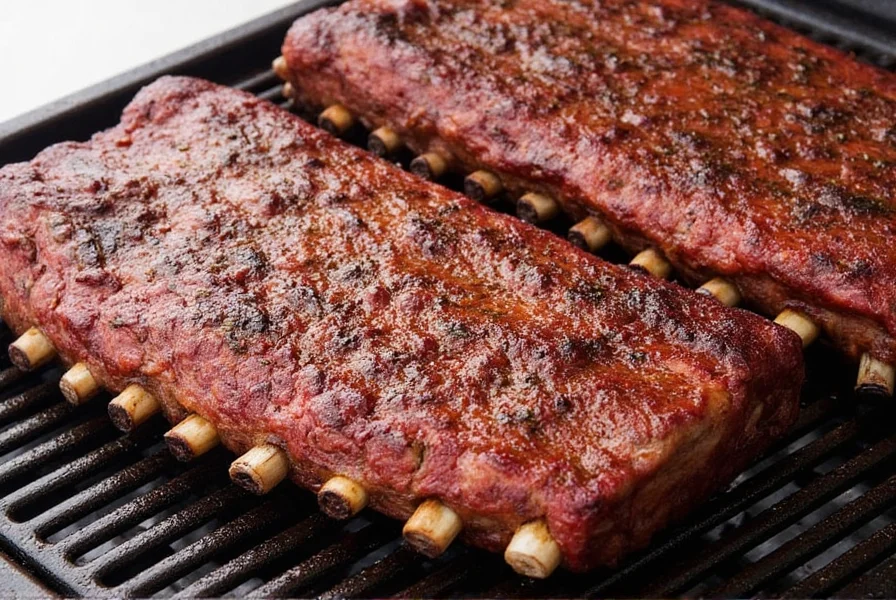
Now fire up the smoker, grab your favorite rub, and get ready to impress everyone at the table!

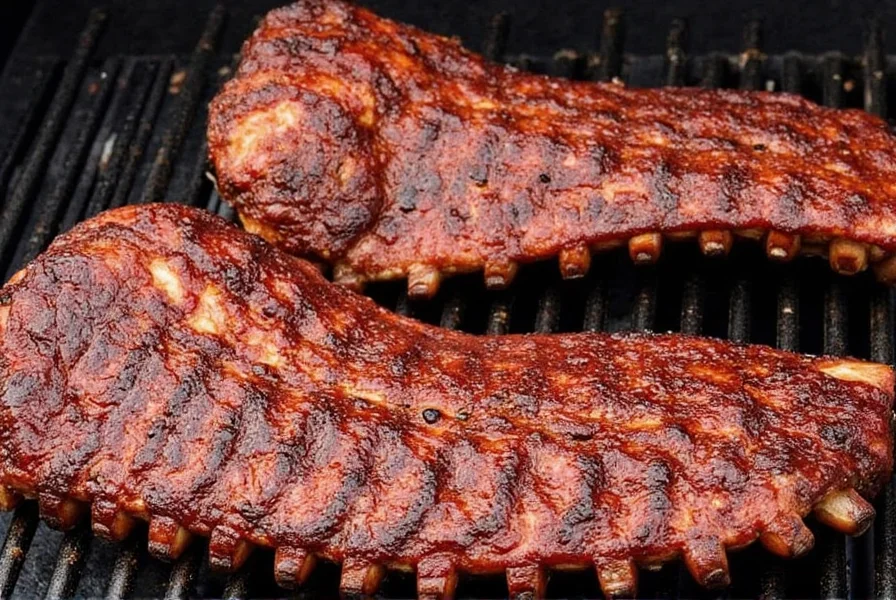









 浙公网安备
33010002000092号
浙公网安备
33010002000092号 浙B2-20120091-4
浙B2-20120091-4